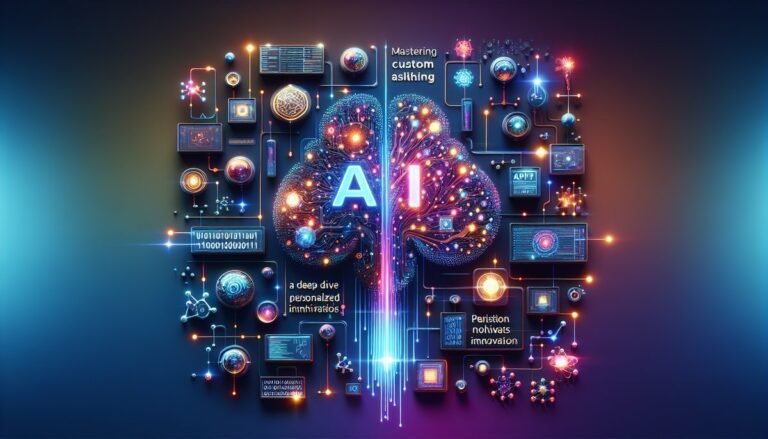The recent Crunchyroll AI Subtitle debacle has sparked widespread discussion, not only among anime enthusiasts but across the broader tech community. This unexpected twist in the streaming giant’s typically well-received service has inadvertently provided a treasure trove of insights. While the initial reaction might have been a mix of frustration and bewilderment, there’s much to glean from this situation beyond the surface-level glitches. It’s not just about a technological hiccup; it’s a fascinating case study into the evolving role of Artificial Intelligence in media localization and the delicate balance of automation and human touch. As we delve into these five surprising lessons, you’ll discover insights that transcend the anime world, offering valuable perspectives for anyone interested in AI, technology, and global communication. So, buckle up as we unravel these intriguing revelations that Crunchyroll’s AI Subtitle incident has unexpectedly gifted us.
1. The Rise of AI in Entertainment
The entertainment industry has seen a significant transformation with the advent of AI technologies, revolutionizing how content is created and consumed. In particular, platforms like Crunchyroll have embraced AI to streamline content delivery. The recent use of AI-generated subtitles, however, underscores the complexity and challenges of implementing such technologies effectively. This incident with the Crunchyroll AI Subtitle highlights both the potential and pitfalls of AI in the entertainment sector. While AI promises efficiency and cost-effectiveness, it also requires precision and reliability, especially in language translation, to meet audience expectations.
AI’s role in entertainment extends beyond just subtitles. From generating visual effects to crafting personalized viewing experiences, AI tools are reshaping the landscape. Yet, as demonstrated by Crunchyroll’s recent challenges, the deployment of AI must be handled with care to preserve the quality and integrity of content. This balance between innovation and quality control is crucial as entertainment companies strive to harness AI’s full potential.
2. Language Nuances and AI Limitations
Language is a complex system of nuances, idioms, and cultural contexts, which poses a significant challenge for AI. The Crunchyroll AI Subtitle issue exemplifies how even advanced AI, like ChatGPT, can struggle with these intricacies. Subtitles require more than just direct translations; they need to convey tone, humor, and cultural references accurately. When AI fails to capture these elements, it can lead to misunderstandings and diminish the viewing experience.
For platforms like Crunchyroll, which cater to a diverse international audience, maintaining subtitle quality is paramount. Each language has its own subtleties that AI must navigate carefully. As AI technologies evolve, addressing these linguistic challenges will be critical to improving subtitle accuracy and enhancing viewer satisfaction.
3. Human-AI Collaboration: A Path Forward
One potential solution to the pitfalls of AI-generated subtitles is fostering human-AI collaboration. By combining the strengths of both, platforms can achieve higher quality outcomes. For instance, AI can be used for initial subtitle drafts, with human translators refining and verifying the content. This hybrid approach ensures that the final product retains linguistic accuracy and cultural relevance.
The Crunchyroll AI Subtitle incident serves as a reminder that while AI can significantly expedite processes, human oversight remains essential. This collaboration not only improves subtitle quality but also builds trust with audiences, who expect seamless and accurate content delivery. As AI continues to evolve, the partnership between humans and machines will be key to leveraging technology effectively.
4. The Importance of Audience Feedback
Audience feedback plays a crucial role in refining AI-generated content. When the Crunchyroll AI Subtitle fiasco occurred, user feedback highlighted the issues and prompted the company to address them swiftly. This feedback loop is invaluable, enabling companies to identify shortcomings and implement necessary improvements.
Incorporating audience insights helps tailor AI solutions to meet consumer needs more effectively. By actively engaging with their audience, Crunchyroll and similar platforms can adapt their AI systems to better align with user expectations. This ongoing dialogue not only enhances content quality but also strengthens the relationship between entertainment providers and their audiences.
5. Future Prospects for AI in Subtitling
Despite the challenges faced, the future of AI in subtitling remains promising. Continuous advancements in Natural Language Processing and machine learning are poised to enhance AI’s capabilities in understanding and generating human-like language. The Crunchyroll AI Subtitle mishap is a learning opportunity that can drive further innovation in the field.
As AI technology matures, it has the potential to revolutionize subtitling by providing more accurate and culturally sensitive translations. The key to success lies in ongoing research and development, coupled with strategic human-AI collaboration. By addressing current limitations and learning from past mistakes, platforms like Crunchyroll can harness AI to deliver superior subtitling experiences worldwide.
Charting the Future of AI in Entertainment
The recent hiccup with Crunchyroll’s ChatGPT subtitles serves as a poignant reminder of the complexities involved in seamlessly integrating AI into creative industries. While the initial attempt may have fallen short of expectations, it highlights a crucial learning curve in AI deployment. As we progress, there’s a growing necessity to look beyond traditional tech solutions, prioritizing refinement and context-awareness in AI applications. The entertainment sector stands on the brink of transformative innovation, where AI can enhance storytelling and viewer engagement. Embracing these challenges with a forward-thinking mindset will pave the way for more sophisticated AI tools that respect and enhance artistic expression. With continued investment in research and development, the future holds promising potential for AI to revolutionize how we experience and interact with media content.






